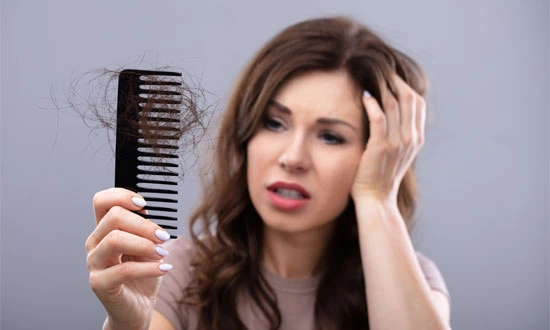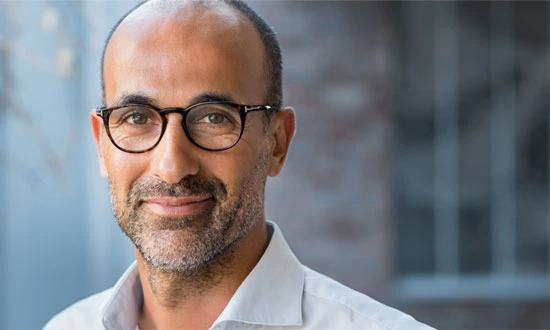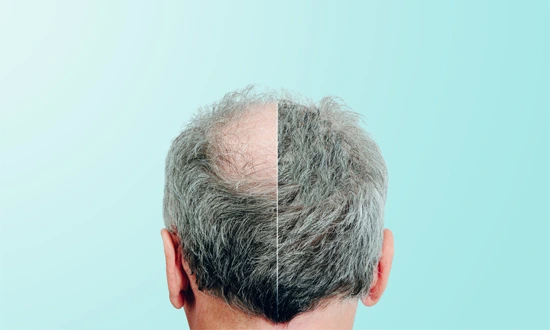- Home
- Hair Loss Treatments
Hair loss is a common concern for many individuals, both men and women alike. The impact of hair loss can be significant, affecting one’s self-esteem and confidence. Fortunately, there are hair loss clinics in Toronto that specialize in addressing this issue. In this article, we will explore the causes and types of hair loss, the role of hair loss clinics in Toronto, the benefits of seeking professional treatment, factors to consider when choosing a clinic, available treatment options, the hair regrowth process, success stories from clinics in Toronto, common causes of female hair loss, specialized treatments, and answer frequently asked questions.
Types of Hair Loss
Gradual Thinning on Top of the Head
The most common type of hair loss is gradual thinning on the top of the head, which often occurs as a natural part of the aging process. In men, this may result in a receding hairline, while women typically experience a broadening of the part in their hair. Another pattern that is increasingly common in older women is a receding hairline known as frontal fibrosing alopecia.
Circular or Patchy Bald Spots
Some individuals may experience circular or patchy bald spots on the scalp, beard, or eyebrows. These spots may be accompanied by itching or pain before the hair falls out. This type of hair loss can be a result of conditions such as alopecia areata or scalp infections like ringworm.
Sudden Loosening of Hair
A physical or emotional shock can lead to sudden hair loss, where handfuls of hair may come out during combing, washing, or even gentle tugging. This type of hair loss is usually temporary and may cause overall hair thinning.
Full-Body Hair Loss
Certain medical conditions and treatments, such as chemotherapy, can result in the loss of hair all over the body. Fortunately, in most cases, the hair does grow back once the underlying cause is addressed.
Patches of Scaling on the Scalp
Patches of scaling accompanied by broken hair, redness, swelling, and oozing may indicate a condition known as ringworm. Prompt medical attention is necessary to treat this fungal infection and prevent further hair loss.
Causes of Hair Loss
Understanding the causes of hair loss is key to finding effective treatment options. While some causes are genetic or hormonal, others may be temporary and reversible. Let’s explore the various factors that can contribute to hair loss.
- Heredity: The most common cause of hair loss is heredity, which occurs with aging and is often referred to as male-pattern baldness or female-pattern baldness. This type of hair loss is typically gradual and follows predictable patterns, such as receding hairlines in men and thinning hair along the crown of the scalp in women.
- Hormonal Changes and Medical Conditions: Hormonal changes due to pregnancy, childbirth, menopause, and thyroid problems can contribute to hair loss. Conditions like alopecia areata, an autoimmune disorder causing patchy hair loss, scalp infections like ringworm, and trichotillomania, a hair-pulling disorder, can also result in temporary or permanent hair loss.
- Medications and Supplements: Certain medications and supplements can have hair loss as a side effect. Drugs used for cancer, arthritis, depression, heart problems, gout, and high blood pressure have been known to cause hair loss in some individuals. If you suspect that your medication is contributing to hair loss, discuss alternatives with your doctor.
- Radiation Therapy and Stress: Undergoing radiation therapy to the head can lead to permanent hair loss in the treated area. Additionally, experiencing a significant physical or emotional shock can cause a general thinning of hair several months later. This type of hair loss is often temporary, and the hair may regrow once the body recovers from the shock.
- Hairstyles and Treatments: Excessive hairstyling, particularly styles that pull the hair tightly, like pigtails or cornrows, can lead to a type of hair loss called traction alopecia. Hot-oil treatments, curling irons, and permanents can also damage the hair follicles, potentially causing hair loss. If scarring occurs, the hair loss may be permanent.
The Role of a Hair Loss Clinic in Toronto
A hair loss clinic in Toronto plays a crucial role in diagnosing and treating hair loss conditions. These clinics are equipped with experienced professionals who specialize in hair restoration and regrowth techniques. They have access to advanced technology and treatments that are not readily available elsewhere. Hair loss clinics offer personalized treatment plans based on individual needs, ensuring the best possible outcomes for their patients. They provide a comprehensive assessment of the underlying causes of hair loss and offer guidance on the most suitable treatment options.
Benefits of Seeking Professional Hair Loss Treatment
Choosing a professional hair loss clinic in Toronto for treatment offers several benefits. Firstly, these clinics have a team of experts who are knowledgeable about the latest advancements in hair restoration techniques. They stay up-to-date with cutting-edge technology and treatments, ensuring that patients receive the most effective and safe solutions. Secondly, professional clinics provide personalized treatment plans tailored to the specific needs of each individual. This personalized approach increases the chances of successful hair regrowth and restoration.
Furthermore, professional hair loss clinics offer a supportive and compassionate environment for their patients. Dealing with hair loss can be emotionally challenging, and having a team that understands and empathizes with the patient’s concerns can make a significant difference. Lastly, seeking professional treatment from a reputable clinic ensures that the procedures performed are of high quality and adhere to safety standards. This reduces the risk of complications and provides peace of mind to the patients.
Factors to Consider When Choosing a Hair Loss Clinic in Toronto
When selecting a hair loss clinic in Toronto, it is crucial to consider several factors to ensure you receive the best possible care. Firstly, research the reputation and credentials of the clinic and its staff. Look for clinics with experienced professionals who specialize in hair restoration. Additionally, consider the clinic’s location, as convenience plays a significant role in maintaining regular appointments. It is also essential to assess the clinic’s approach to patient care and whether they offer personalized treatment plans tailored to your specific needs.
Hair Loss Treatment Options Available at Hair Loss Clinics
Hair loss clinics in Toronto offer a wide range of treatment options to address various types and causes of hair loss. These options include medications, laser therapy, platelet-rich plasma (PRP) therapy, hair transplant surgery, and scalp micropigmentation. Medications, such as minoxidil and finasteride, can help slow down hair loss and promote regrowth. Laser therapy utilizes low-level laser light to stimulate hair follicles and enhance hair growth. PRP therapy involves injecting the patient’s own platelet-rich plasma into the scalp to stimulate hair regrowth.
Hair transplant surgery is a surgical procedure that involves harvesting hair follicles from a donor area and transplanting them to areas with thinning or no hair. This procedure provides a permanent solution to hair loss and can result in natural-looking thick hair. Scalp micro-pigmentation is a non-surgical technique that involves tattooing tiny dots on the scalp to mimic the appearance of hair follicles. This treatment option is suitable for individuals who prefer a shaven or buzzed hairstyle.
Understanding the Hair Regrowth Process
Hair regrowth is a gradual process that requires patience and consistency. When undergoing treatment at a hair loss clinic in Toronto, it is essential to understand the hair regrowth process. Initially, you may experience shedding of old hair, which is a normal part of the hair growth cycle. As the treatment progresses, you will notice new hair growth, which will gradually become thicker and fuller. It is important to follow the prescribed treatment plan and attend regular follow-up appointments to monitor progress and make any necessary adjustments.
Female Hair Loss: Common Causes and Specialized Treatments
Hair loss is not exclusive to men; women also experience hair thinning and loss. Female hair loss can be caused by factors such as hormonal imbalances, pregnancy, menopause, and certain medical conditions. Hair loss clinics in Toronto recognize the unique needs of female patients and offer specialized treatments tailored to address their specific concerns. These treatments may include hormone therapy, nutritional counseling, and scalp treatments to stimulate hair growth and improve overall hair health.
The Importance of Personalized Hair Loss Treatment Plans
Every individual’s hair loss situation is unique, and therefore, a one-size-fits-all approach does not yield optimal results. Hair loss clinics in Toronto understand the importance of personalized treatment plans tailored to each patient’s specific needs. These personalized plans take into account factors such as the underlying cause of hair loss, the stage of hair loss, the individual’s overall health, and their desired outcome. Hair loss clinics can provide the most effective and targeted treatment approach for each patient by addressing these unique factors.
Hair loss is a common concern for many individuals, both men and women alike. The impact of hair loss can be significant, affecting one’s self-esteem and confidence. Fortunately, there are hair loss clinics in Toronto that specialize in addressing this issue. In this article, we will explore the causes and types of hair loss, the role of hair loss clinics in Toronto, the benefits of seeking professional treatment, factors to consider when choosing a clinic, available treatment options, the hair regrowth process, success stories from clinics in Toronto, common causes of female hair loss, specialized treatments, and answer frequently asked questions.

Male Hair Loss
Worldwide, hair loss affects almost 1/3 of the population. On average, a person loses 100 strands of hair a day, and there are many causes of hair loss, including vitamin deficiency, medications, genetics, and stress. If you have noticed an increase in hair fall or a receding hairline, the first thing you should do is see your primary physician to make sure it’s not a sign of a more serious health condition.
Female Hair Loss Clinic
Hair loss can be particularly devastating to women. While male hair loss is seen as inevitable for a large proportion of men in the community, female hair loss is far less common and, therefore less culturally acceptable. This only adds to the stigma for women who experience hair loss. In many cases, the damage to a woman’s self-confidence can affect her whole quality of life.


Guide To Hair Loss
In the majority of cases, balding in men is hereditary and caused by an increase in the production of the hormone dihydrotestosterone. However, there are other things that can cause hair loss. Read on to understand more about your hair loss and potential treatment options.
3 Cycles Of Hair Growth
Every month your hair grows around an inch and a half, and believe it or not it moves faster in the summer than in winter. The growth phase, also known as the anagen phase, lasts between 3-5 years. Hair loss, hair thinning and problems with hair growth occur when your growth cycle is disrupted. By having a detailed understanding of the systems we can better recognize and understand the problems associated with hair loss.


Male Pattern Baldness
There are 7 classes of Male Pattern Baldness. The good news is – hair restoration techniques are available to help men in almost all of these stages.
Class 1 Male Pattern Baldness
Hair Loss FAQ's
Collating frequently asked questions simplifies understanding and decision-making regarding hair restoration procedures. Addressing common queries provides clarity and guidance.

How long does it take to see results from hair loss treatments?
The timeline for seeing results varies depending on the treatment method and individual response. In general, noticeable improvements can be observed within a few months of starting the treatment.
Are the hair loss treatments painful?
Most hair loss treatments are minimally invasive and do not cause significant pain. Some individuals may experience mild discomfort during procedures, but this can be managed with local anesthesia or numbing agents.
Can hair loss be prevented?
While some types of hair loss are unavoidable, certain preventative measures can be taken to minimize the risk. Maintaining a healthy lifestyle, managing stress levels, and avoiding harsh hair treatments can contribute to overall hair health.
Are the results of hair transplant surgery permanent?
Hair transplant surgery provides a permanent solution to hair loss. The transplanted hair follicles are typically resistant to the effects of DHT, the hormone responsible for male pattern baldness, ensuring long-term results.
How can I determine the best hair loss treatment Toronto for my specific condition?
Our hair loss treatment clinic employs skilled professionals who conduct thorough assessments to understand your unique hair loss concerns. Based on this evaluation, we recommend personalized treatment plans designed to target and reverse hair loss effectively.
Are your hair regrowth clinic treatments suitable for female hair loss?
Absolutely. Our hair regrowth clinic specializes in treatments that cater to both male and female hair loss concerns. We have tailored approaches specifically designed to address the distinctive needs of female clients experiencing hair loss.
Contact Us Today
If you are experiencing hair loss and seeking professional treatment, contact our Toronto hair loss clinic today. Our team of experts is dedicated to helping individuals regain their confidence and achieve natural-looking hair restoration. With personalized treatment plans and state-of-the-art technology, we are committed to delivering exceptional results. Don’t let hair loss hold you back; take the first step towards a fuller head of hair by contacting our clinic today.















